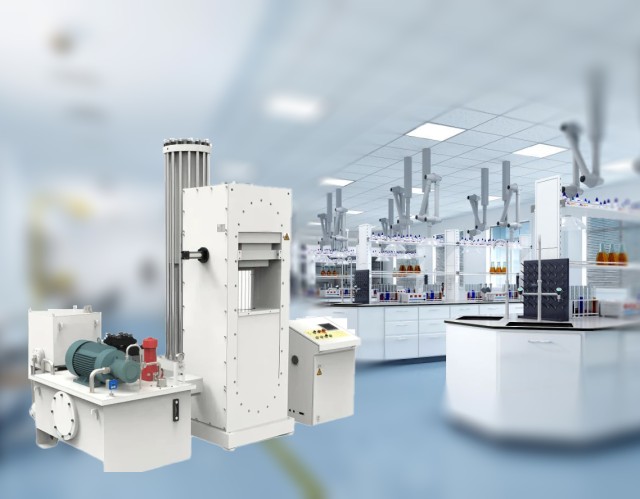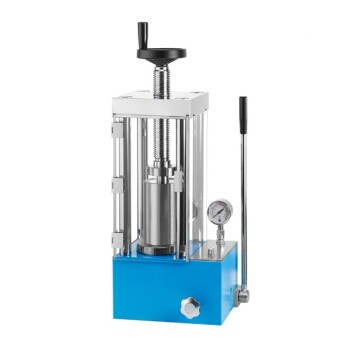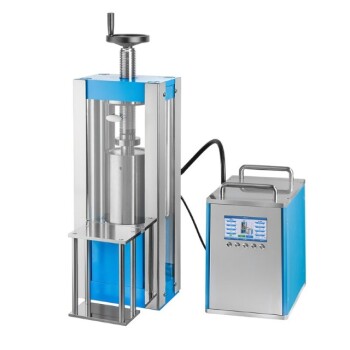Introduction: Importance of a Lab Press
A lab press is an essential piece of equipment for any laboratory that requires the application of pressure or force to materials. It is used to compress, crush, or compact materials such as powders, pellets, and other materials. Lab presses are used in a variety of applications, including material research, sample preparation, and quality control. The importance of a lab press lies in its ability to provide accurate and consistent pressure and force, which is crucial in obtaining reliable results. Choosing the right lab press is essential to ensure that your laboratory work is efficient and accurate. In the following paragraphs, we will discuss the factors you need to consider when choosing the right lab press for your laboratory.
Table of Contents
- Introduction: Importance of a Lab Press
- Considerations: Capacity, force, and pressure range
- Types of Lab Press: Hydraulic, Pneumatic, and Manual
- Durability and Ease of Use: Build quality and controls
- Brand and Service: Positive Reviews and Warranty Options
- Conclusion: Factors to consider when choosing a lab press
Considerations: Capacity, force, and pressure range
When selecting a lab press, there are several important factors to consider that can impact the accuracy and reliability of your results. The three primary considerations are capacity, force, and pressure range.
Capacity
Capacity is the amount of pressure that a lab press can withstand without breaking. It is important to ensure that the capacity of the press is appropriate for the type of materials being tested. Choosing a press with a capacity that is too low can result in inaccurate results, while choosing one that is too high can be unnecessary and costly.
Force
Force is the amount of pressure that a lab press can exert on a sample, which determines the level of compression that can be achieved. This is particularly important when testing materials that are difficult to compress, such as metals or ceramics. It is crucial to choose a press with enough force to achieve the desired compression level, without damaging the sample.
Pressure Range
Pressure range is also a key consideration when selecting a lab press. This refers to the range of pressures that can be applied and is particularly important when testing materials that have different pressure requirements. A press with a wider pressure range can be more versatile and suitable for a broader range of applications.
Overall, when choosing a lab press, it is important to consider the capacity, force, and pressure range to ensure that you can obtain accurate and reliable results. In addition to these key considerations, other important factors to consider include ease of use, durability, and cost. By carefully considering these factors, you can select the lab press that best meets your needs and helps you achieve your research objectives.
Types of Lab Press: Hydraulic, Pneumatic, and Manual
A lab press is an essential machine in laboratories that compress and shape samples of different materials. There are three types of lab presses available in the market, and each has its own advantages and disadvantages. Here's a closer look at each type:
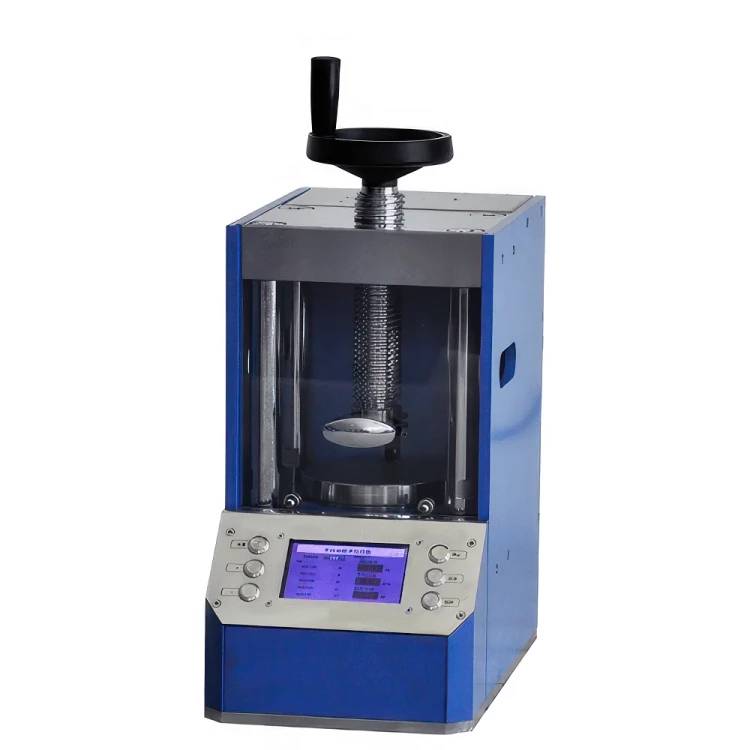
Hydraulic Lab Press
Hydraulic lab presses are the most powerful and are capable of handling the largest samples. They can exert a tremendous amount of force and are ideal for compressing hard materials such as metals and ceramics. However, they can also be the most expensive type of lab press, and their maintenance can be costlier than other types.
Pneumatic Lab Press
Pneumatic lab presses are less expensive and more versatile than hydraulic presses. They require a source of compressed air to operate and can provide greater precision and speed during operation. They are ideal for compressing soft materials such as plastics and rubber, and they offer a wider range of pressure settings. However, they may not be suitable for compressing hard materials, and they may require specialized training to operate.
Manual Lab Press
Manual lab presses are the most affordable option and are ideal for smaller samples. They require more physical effort to operate, but they are simple to use and maintain. They are suitable for compressing soft materials such as powders and gels. However, they may not be suitable for compressing hard materials, and their pressure settings may be limited.
When choosing a lab press, it's important to consider factors such as the size and type of sample you will be working with, your budget, and the amount of space you have available in your laboratory. By carefully considering these factors and understanding the differences between hydraulic, pneumatic, and manual lab presses, you can choose the right one for your needs and ensure accurate and reliable results in your laboratory experiments.
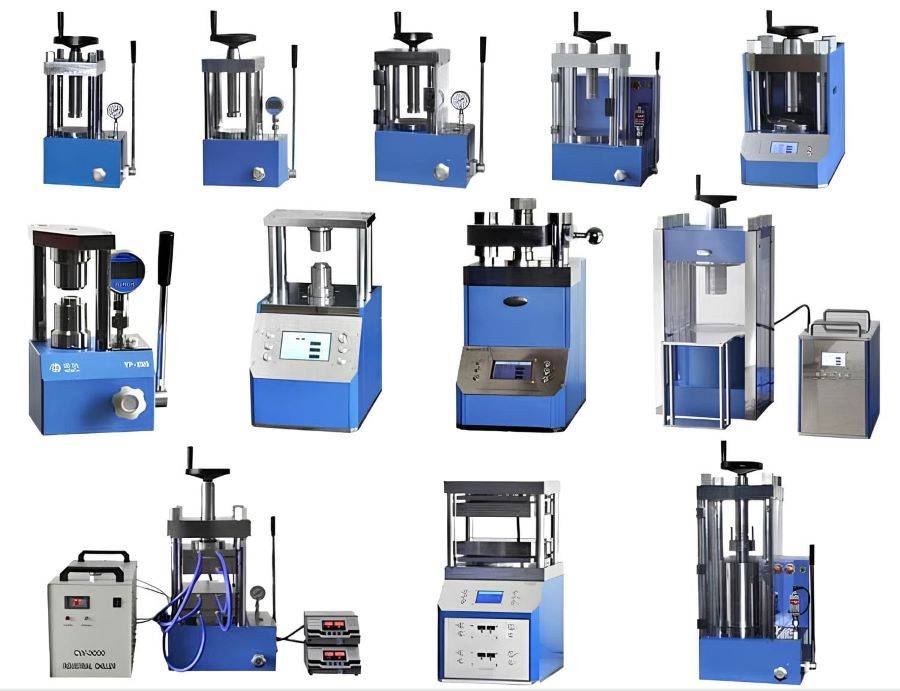
Durability and Ease of Use: Build quality and controls
When selecting a lab press, two important factors to consider are durability and ease of use. The build quality of the lab press is a key aspect of durability. A well-built press will be more resistant to wear and tear, as well as withstand the rigors of heavy use.
Build Quality
When evaluating the build quality of different lab press options, look for press models made with high-quality materials. A robust, reliable and durable press should be resistant to corrosion, chemicals, and condensate. Such a press will be less likely to require frequent maintenance and repairs, thereby reducing downtime and increasing productivity.
Controls
The controls of the lab press are also an important consideration, as they dictate how easy and intuitive it is to operate the press. Ideally, the press should have straightforward controls that allow for precise adjustments to pressure and temperature. Look for press models with programmable presets, digital displays, and other features that can help streamline the process and reduce the likelihood of operator error.
When considering controls, don't overlook the importance of safety. The press should have safety features such as guards and emergency stop buttons to prevent accidents and protect the operator.
Ultimately, the right lab press will depend on the specific needs of the laboratory and the types of materials being processed. By carefully evaluating the build quality and controls of different options, labs can ensure they are investing in a durable and user-friendly piece of equipment that will provide reliable results for years to come.
Brand and Service: Positive Reviews and Warranty Options
When choosing a lab press, it is essential to consider both the brand and the service options available. Here are some key factors to look for:

Positive Reviews from Other Users
One of the essential factors to consider when choosing a lab press is to look for positive reviews from other users in the scientific community. Positive reviews can give you an indication of the quality and reliability of the equipment. You can check out reviews on the manufacturer's website, third-party review sites, or ask for recommendations from colleagues.
Warranty Options Offered by the Manufacturer
It is crucial to research the warranty options offered by the manufacturer before making a purchase. A good warranty can provide peace of mind and protect your investment in the long run. Look for a company that offers a comprehensive warranty that covers all parts and labor for a reasonable amount of time. Make sure you understand what the warranty covers and what it does not cover.
Comprehensive Customer Service
In addition to positive reviews and warranty options, it is also important to consider the level of customer service that a company provides. Look for a manufacturer that has a responsive and knowledgeable customer support team that can help you with any issues that may arise. Check if the company offers online resources such as manuals, instructional videos, and FAQs to help you troubleshoot common problems.
Brand Reputation
Brand reputation is another crucial factor to consider when choosing a lab press. Look for a manufacturer that has a good reputation in the scientific community for producing high-quality, reliable equipment. You can check out the company's history, awards and recognitions, and the number of years it has been in business.

Service Options
Finally, consider the service options available from the manufacturer. Does the company offer installation, maintenance, and repair services? If so, what is the cost of these services, and how responsive is the company in providing them?
In conclusion, choosing the right lab press can have a big impact on the success of your experiments, so take the time to do your research and make an informed decision. Look for a manufacturer that offers positive reviews, a comprehensive warranty, excellent customer service, a good brand reputation, and a wide range of service options.
Conclusion: Factors to consider when choosing a lab press
Choosing a lab press requires careful consideration of several factors. It's essential to take into account the capacity, force, and pressure range needed for your particular application. You must also consider the type of lab press that best suits your needs, whether it's hydraulic, pneumatic, or manual. The build quality of the press and its controls is also important, as well as the brand's reputation and warranty options. By taking these factors into account, you can ensure that you choose a lab press that is durable, easy to use, and reliable for your laboratory needs.
Related Products
- Automatic Laboratory Hydraulic Pellet Press Machine for Lab Use
- Manual Lab Heat Press
- Automatic Heated Hydraulic Press Machine with Heated Plates for Laboratory Hot Press 25T 30T 50T
- Heated Hydraulic Press Machine with Heated Plates for Vacuum Box Laboratory Hot Press
- 24T 30T 60T Heated Hydraulic Press Machine with Heated Plates for Laboratory Hot Press
Related Articles
- Comprehensive Guide to Manual Hydraulic Pellet Press
- Fully automatic tablet press operating steps and replacement accessories
- A Comprehensive Guide on Pressing XRF Pellets Using a KinTek Automatic Hydraulic Press
- Automatic Hydraulic Press: The Ultimate Guide for Efficient Sample Preparation and Industrial Processes
- Manual Hydraulic Pellet Press: An Efficient Tool for Spectral Analyses Preparation
